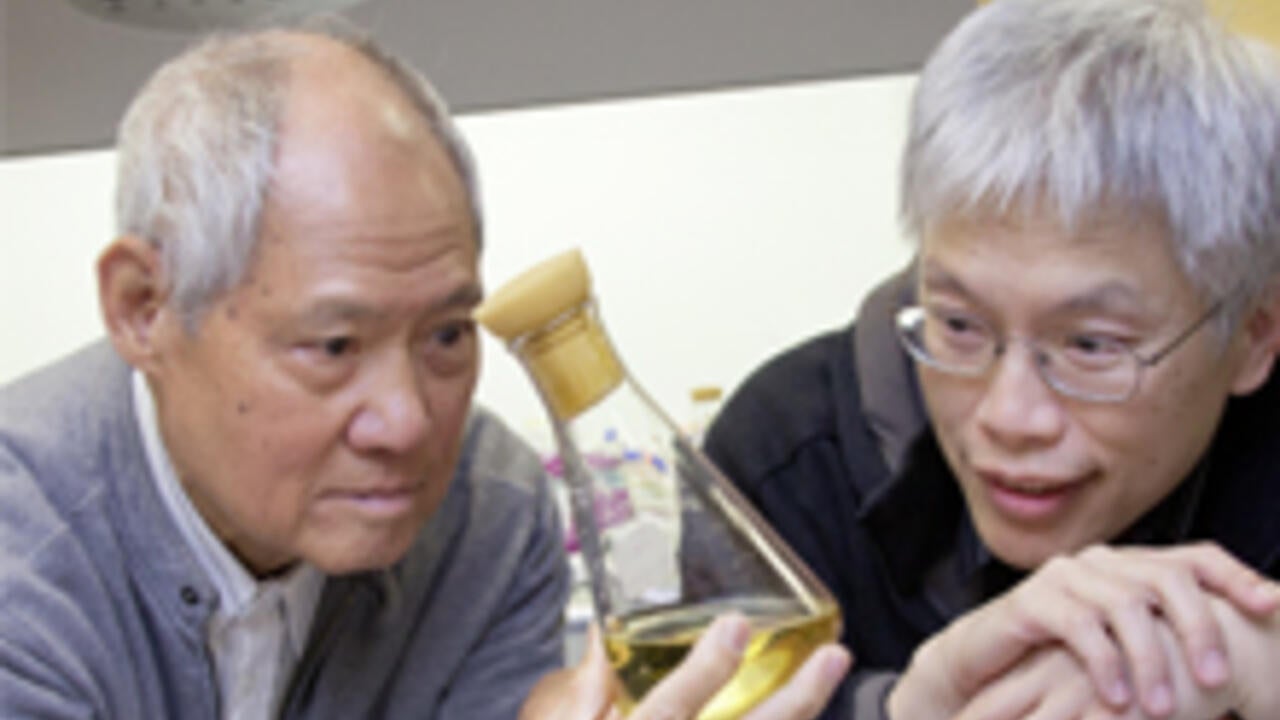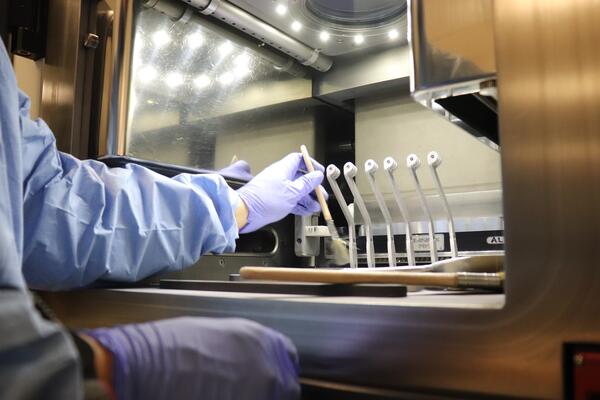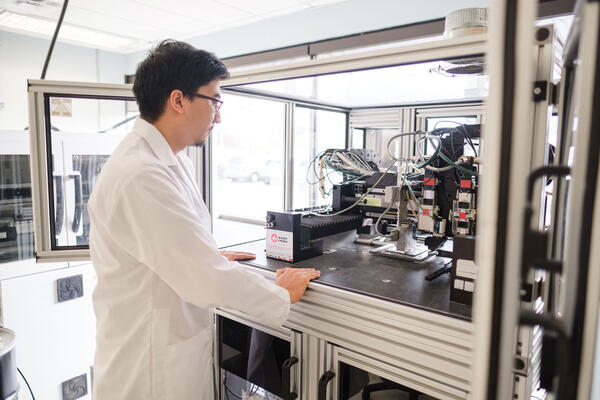
Can bacteria help create a cheaper fuel for our cars?
Engineering researchers hope genetically-modified bacteria will turn chemical waste into green biofuel.

Engineering researchers hope genetically-modified bacteria will turn chemical waste into green biofuel.
By Mark Witten Communications and Public AffairsAn innovative biofuel that may one day be cheaper to produce than gasoline is being developed at the University of Waterloo by two chemical engineering researchers.
 Murray Mou-Young and Perry Chou, University of Waterloo
Murray Mou-Young and Perry Chou, University of Waterloo
“If this is successful, we’ll have a new technology that’s Canadian. We’ll also have students trained to do this, who will be among the highly-qualified people needed to develop this country’s biofuels and biomanufacturing industry,” says Murray Moo-Young, a distinguished professor emeritus in the Department of Chemical Engineering.
Biofuels are a renewable energy source produced by plants like sugar cane and corn. While these fuels are better for the environment than fossil fuels, they are often expensive to produce and they deplete food sources.
Waste to fuel
Moo-Young and Perry Chou, a professor of chemical engineering and a researcher in the Centre for Bioengineering and Biotechnology, are using genetically-modified bacteria to convert a chemical waste called glycerol into a clean low-cost fuel called butanol. Glycerol is a waste by-product of biodiesel manufacturing.
“We’re using genetic engineering to change the properties of certain natural bacteria to make butanol from glycerol more efficiently and effectively,” explains Chou,
The advantage of using glycerol as the starting material, known as “feedstock,” is its low cost. “Feedstock is normally expensive and a major cost in biofuel production. People pay to treat and dispose of glycerol, so it could be considered free,” says Chou, who holds a Canada Research Chair in Biomanufacturing.
Rich energy source
Unlike crop feedstocks, such as corn or soybeans, using glycerol won’t deplete food resources or raise prices.
Butanol is an attractive biofuel because it’s safer and has more energy content than ethanol, the most common biofuel worldwide. Without government subsidies, however, neither ethanol nor butanol can be produced as economically as fossil fuels today.
Chou and Moo-Young hope their innovative research can make butanol competitive with fossil fuels, or even cheaper to produce. They were recently awarded a large grant from the Natural Sciences and Engineering Research Council of Canada (NSERC) to develop new bacterial strains and bioprocessing techniques to accomplish this goal.
Scaling up for the future
The green energy profs are partnering with Centurion Biofuels, an industrial manufacturer in Hamilton, to help make the butanol conversion and production technology they’re developing commercially viable.
Their first step is to genetically alter designated bacterial strains. Once they develop an artificial bug strain that can churn out butanol from glycerol at a much higher rate, Chou, Moo-Young and their team of up to eight Waterloo engineering students will apply bioprocess engineering techniques to scale up and produce large amounts of butanol.

Read more
3D printing technology is perfect fit with new Waterloo Institute for Sustainable Aeronautics

Read more
Waterloo lab helps fill industry demand for additive manufacturing skills

Read more
Combining machine learning techniques with real-world scenarios to combat forest fires
The University of Waterloo acknowledges that much of our work takes place on the traditional territory of the Neutral, Anishinaabeg and Haudenosaunee peoples. Our main campus is situated on the Haldimand Tract, the land granted to the Six Nations that includes six miles on each side of the Grand River. Our active work toward reconciliation takes place across our campuses through research, learning, teaching, and community building, and is co-ordinated within the Office of Indigenous Relations.